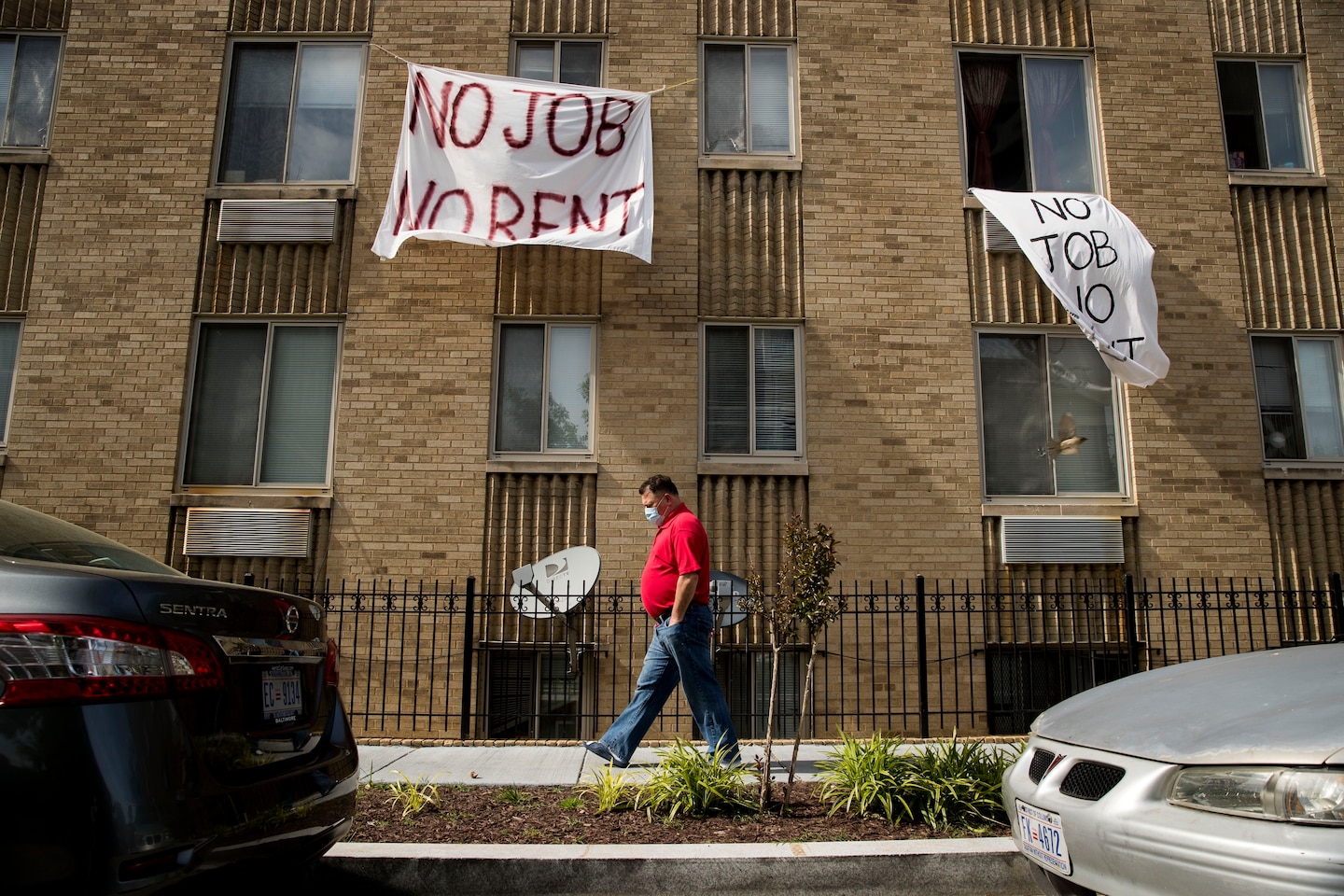Want to address systemic racism? Start with housing.

To get there, we need federal support that goes beyond what local resources can provide. The federal government has the power and resources to begin to undo the harm our nation has done to communities of color. That was proved when it found $2 trillion to fund the Cares Act in a few short weeks.
Many of the critical resources in the Cares Act will soon run out or expire on July 31. If our representatives are serious about creating racial equity, the path forward is clear: We must dismantle the systems that keep disparities locked in place. Our nation’s housing system — and the programs and policies that perpetuate racial disparities in housing — is the best place to start.
The $1 trillion in aid to state and local governments and the support for proven housing programs included in the U.S. House’s Heroes Act are a glimmer of hope, but only if Congress ensures that these funds and more make it into a signed stimulus package before the August recess.
Even before the covid-19 pandemic, housing has always been the primary contributor to this country’s massive racial wealth gap. The creation of the Federal Housing Administration in 1934 led to discriminatory redlining policies that secured loans for white-only, often suburban subdivisions that mandated the exclusion of African Americans. It also furthered segregation efforts by refusing to insure mortgages in and near African American neighborhoods. These policies created the segregated communities we still live in today and persist through federal disinvestment in affordable housing programs.
The 2008 financial crisis disproportionately impacted black homeowners, who purchased homes with rate terms and conditions less favorable than those offered to white homeowners and experienced higher foreclosure rates. Many have still not recovered financially. Systemic racism created a society where white households have 10 times the wealth of black households. We are at risk of history repeating itself if federal covid-19 relief measures primarily benefit white households.
Homeownership is one of the most powerful wealth-building tools available to working families, yet it is still a startlingly white institution. The Federal National Mortgage Association and the Federal Home Loan Mortgage Corporation have passed robust assistance programs for homeowners, but there is a 30-percentage-point difference between black and white homeownership rates — a gap that has actually increased over the past 50 years.
Compared with the layers of protection afforded to homeowners, support for renters during the pandemic has been paltry. Small stimulus payments and a temporary boost to unemployment benefits — up to a third of which had been approved but still not received in June — are not enough. Black and Hispanic families are twice as likely to rent as white families, and black families are 77 percent more likely to have severe rent burdens. African Americans are also disproportionately impacted by homelessness. Temporary eviction moratoria, most of which expire before July 31, do not absolve tenants of paying back rent, whether they have stable income or not.
It is impossible to fully address these issues without starting at home. After decades of disinvestment and denial, now is the time for Congress to show its commitment to housing programs that support the stability and mobility of people of color.
In addition to the $1 trillion in aid for state and local governments included in the Heroes Act, Congress must provide additional resources so our cities can finally fund critical safety net programs at the true level of need, rather than allowing the most vulnerable Americans to continue falling through the cracks. Programs such as Section 8 Housing Choice Vouchers, HOME and Community Development Block Grants have proved their success over time, but they remain underfunded building blocks of a long-term solution to the issues we face. Congress cannot leave for August recess until its members have provided the necessary resources to protect our communities.
The message from our communities is clear, and we hope that by speaking with one voice, Congress will hear it too. Together, our cities are part of 27 metropolitan regions that drive one-third of U.S. gross domestic product, represent more than 17 million people of racially and economically diverse backgrounds and cover more than 3,000 square miles. What happens, or doesn’t happen, in our cities has ripple effects that impact local communities and economies around the country. Our leaders in Washington must step up.
The following signers are all U.S. mayors: Marty Walsh (D) of Boston; Michael B. Hancock (D) of Denver; Muriel Bowser (D) of Washington, D.C.; London Breed (D) of San Francisco; Jenny Durkan (D) of Seattle; Lori Lightfoot (D) of Chicago; Sylvester Turner (D) of Houston; Keisha Lance Bottoms (D) of Atlanta; LaToya Cantrell (D) of New Orleans; Mary-Ann Baldwin (D) of Raleigh, N.C.; Steve Schewel (D) of Durham, N.C.; Kate Gallego (D) of Phoenix; Libby Schaaf (D) of Oakland, Calif.; Darrell Steinberg (D) of Sacramento; Sam Liccardo (D) of San Jose; Michael Tubbs (D) of Stockton, Calif.; Mike Coffman (R) of Aurora, Colo.; Lucy Vinis (D) of Eugene, Ore.; Jim Kenney (D) of Philadelphia; Lovely Warren (D) of Rochester, N.Y.; Svante Myrick (D) of Ithaca, N.Y.; Andy Schor (D) of Lansing, Mich.; Seth Fleetwood (D) of Bellingham, Wash.; Sam Weaver (D) of Boulder, Colo.; Aja Brown (D) of Compton, Calif.; Armondo Pavone (I) of Renton, Wash.; Penny Sweet (D) of Kirkland, Wash.
Read more:






